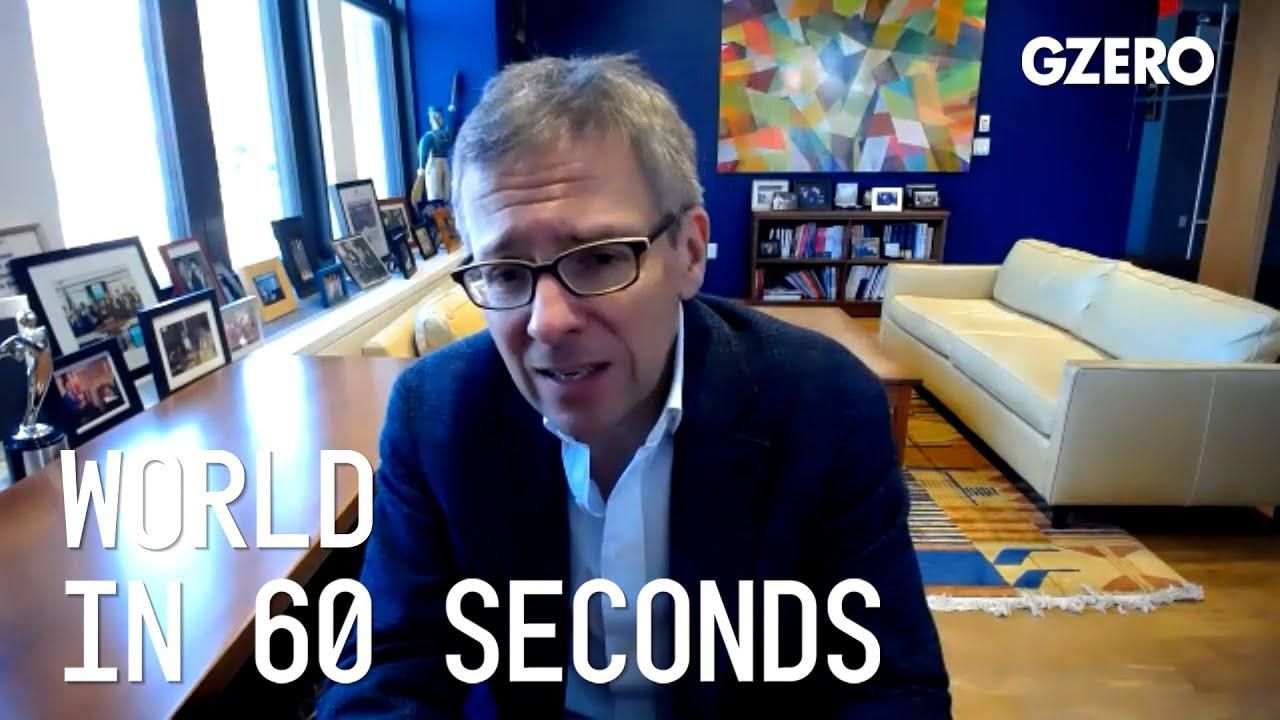Ian Bremmer shares his perspective on global politics this week:
Why has there been a recent escalation of violence in Jerusalem?
Well, it started with demonstrations of the Palestinians expecting a verdict on these cases of Palestinians that have been pushed out of their homes in East Jerusalem by settlers, contested territory that has belonged to the Palestinians. You've had lots of violence against them by Israeli police, then you had Gaza missiles from Hamas, and then Israeli missiles into Gaza, and now we've got a couple dozen Palestinians dead and the potential for this to get a lot worse is real. The shekel has even moved a little bit because there's concerns that this could lead to a war. It's not a broader war. This is not as much of a priority for the Arabs in the region, so it doesn't kill the Abraham Accords, Iran is still moving ahead with a deal, but in terms of potential for real bloodshed between Israel and the Palestinians, absolutely. That's something to worry about.
What's happening in Colombia?
There was an effort by President Duque in his last year, he can't run for another term, to increase taxes to deal with their fiscal balance. And it's still in the middle of a pandemic, the timing was really difficult, especially because it hits the poor too, it's not just wealthy taxes, even things like funerals. Massive outcry, now anger about all sorts of things, a lot of violence, police brutality in the response. His popularity has hit the toilet as a consequence and a lot of instability on the ground of Colombia. This is not just a Colombia problem. You have this kind of outcry against established political figures across South America, right now, as they're dealing with some of the worst outbreaks of coronavirus. This is a region that's been hit both economically and healthcare-wise really bad.
Finally, what's the concern with China's population growth decline?
Well, every 10 years they have a census and the population is flat. There was some belief it might even have decreased a little bit, but it's certainly not growing. India's population is growing. When you look at India versus China, there is a lot of sense of, "Well, how can China become a superpower if their population is going to get old before it gets rich, and if they're running out of workers and if not as many people are consuming, especially when they focus on dual circulation, which means more domestic demand?" But this is a longer-term issue. Near-term, the more proximate point is that the Chinese are at parity with the Americans on key technologies, and that makes them, by far, the most important competitor and national security threat to the United States. Ain't going to change.
- Israel's "anyone but Bibi" election - GZERO Media ›
- Is the US Misjudging the Middle East's Power Shifts? - GZERO Media ›
- Will Palestinians get to vote? - GZERO Media ›
- What We're Watching: Violence in Jerusalem, Scotland's ... ›
- Netanyahu and Hamas both won, Israelis and Palestinians lost - GZERO Media ›
- Israel-Palestine violence explodes: what happens next? - GZERO Media ›
- What kind of leverage does Biden really have with Bibi? - GZERO Media ›
More For You
People in support of former South Korean President Yoon Suk Yeol rally near Seoul Central District Court in Seoul on Feb. 19, 2026. The court sentenced him to life imprisonment the same day for leading an insurrection with his short-lived declaration of martial law in December 2024.
65: The age of former South Korean President Yoon Suk Yeol, who was sentenced to life in prison on Thursday after being found guilty of plotting an insurrection when he declared martial law in 2024.
Most Popular
In an era when geopolitics can feel overwhelming and remote, sometimes the best messengers are made of felt and foam.
The Hungarian election is off to the races, and nationalist Prime Minister Viktor Orbán is facing his most serious challenger in 16 years.
Does skepticism rule the day in politics? Public opinion data collected as part of the Munich Security Conference’s annual report found that large shares of respondents in G7 and several BRICS countries believed their governments’ policies would leave future generations worse off.
